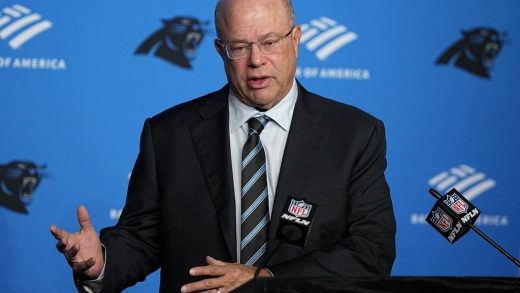
Gwynne Dyer is a UK-based Canadian journalist and historian who writes about international affairs.
OPINION: This year’s United Nations Climate Change Conference (COP27) opens in Cairo next Sunday and continues for two weeks, but all that hot air is less important than the single fact that ‘Lula’ da Silva narrowly won the Brazilian presidency last Sunday.
He may be able to save the Amazon; they can’t move fast enough to do that.
I’m not denigrating these massive conferences, because that’s the only way to bring all the world’s governments together and put them under intense pressure to up their game on global heating.
In fact, it’s the only place that big commitments on cutting global greenhouse gas emissions ever get made. So last year they doubled down on the summits.
READ MORE:
* Climate Minister blames court delay for inaction on tougher climate pledge
* The lungs of the earth can breathe again after Brazil elects new president
* European Union approves ban on new combustion-engine cars from 2035
They went from big conferences every five years – but only ‘expert’ meetings in between – to big summits where the political decision-makers are present every year.
Physically present, not just following the talks sporadically on websites, because human beings are animals, and only physical presence creates real social pressure.
If all the presidents and prime ministers have to show up every year and demonstrate to their fellow leaders that they are pulling their weight, the thinking goes, then that should ratchet up the commitments they make at these now annual meetings.
This new system may really produce better results in the end, but the short-term effect was bound to make this year’s summit feel like a disappointment.
Last year’s conference could showcase all the new commitments that had been extracted from governments over the previous five years. This year’s conference has only the result of one year’s efforts to show.
But the pundits who will use the probably unimpressive results of the Cairo summit as evidence that the new system has failed are passing judgement too soon.
Over the long run the new approach is likely to produce better results.
On the other hand, these massive global meetings, with well over a hundred governments in attendance together with many NGOs, fossil fuel lobbyists in thin disguise, and various odds and sods, move very slowly and require huge compromises.
The final statement of last year’s COP26 in Glasgow, for example, was the first ever to mention the word ‘coal’ in the final statement.
Coal is the biggest single human source of carbon dioxide emissions by far, but various lobbyists and coal-rich countries had managed to exclude even the word from the previous twenty-five final communiqués.
So we are a very long way from the Promised Land, and the best news this year has to offer on the climate front is that the Amazon, which may have been on the brink of irreversible collapse, has got a reprieve.
Mary Altaffer/AP
Brazilian far-right president Bolsonaro, a climate change sceptic, led a devastating campaign against the Amazon that caused considerable damage to the rainforest. His defeat in the recent elections against former president Lula da Silva, who implemented major environmental protection policies in the past, is good news ahead of this year’s COP27.
The past four years, with Jair Bolsonaro as president of Brazil, have seen unprecedented levels of illegal mining operations and of land being cleared for cattle-raising by burning the rainforest.
The rate of deforestation fell from a peak of 28,000 sq. km. a year (about the size of Belgium) when Lula took office in 2003 to only one-fifth as much by 2014. However, it was already rising again when Bolsonaro came to power in 2019 and is now at a record high.
There is reason to fear that the Amazon might actually flip from rainforest to savannah.
That wouldn’t just harm people in the Amazon; it’s a global concern.
The Amazon is one of the key ecosystems that regulate the global climate, and changing it drastically could weaken the West African monsoon, strengthen hurricanes, even accelerate the melting of the world’s ice.
The knee-bone is indeed connected to the thigh-bone.
There has long been a scientific debate about whether the Amazon is doomed anyway, no matter what people do or don’t do.
A decade or so ago most scientists believed that just the general heating of the planet, with or without illegal logging, mining and land-clearance, would dry the region out and change it to a savannah by the 2040s.
However, further research has reversed that conclusion.
The latest Earth system models show little sign of dieback except where there is direct human deforestation.
Elsewhere, the phenomenon of ‘CO2 fertilisation’ provides a positive impulse to tree growth that outweighs the negative effect of higher temperature.
In other words, the Amazon can survive unless human intervention overwhelms it.
Four more years of Bolsonaro could have been enough to tip the scales irrevocably, but Lula has pledged to stop the destruction of the Amazon. His past record in office suggests that he can and will do it.
By a margin of less than 2% of the vote, Brazilians have voted to save the Amazon.
Another close call, another calamity postponed (but not yet cancelled).
Gwynne Dyer’s new book is The Shortest History of War.


